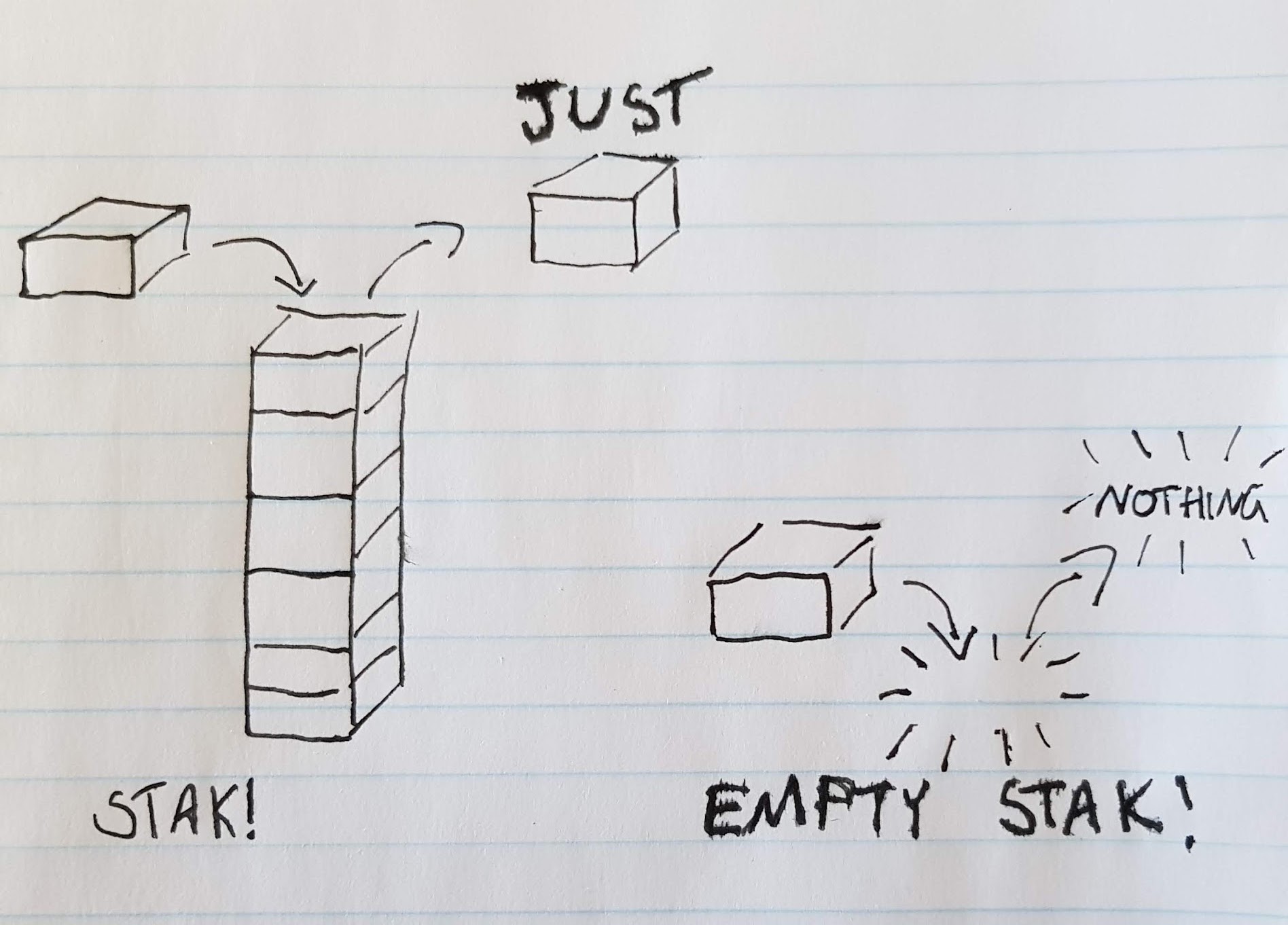Rules of thumb for type constraints.
- Prefer manipulating data through interfaces rather than directly.
- If one typeclass can implement a second typeclass, the first typeclass is a subtype of the second.

At one point I needed to implement a simple stack structure in Haskell:
import Data.List
type Stack a = [a]
push :: a -> Stack a -> Stack a
push = (:)
pop :: Stack a -> Maybe (a, Stack a)
pop = uncons
Nice and simple. Afterwards I needed to implement a stack somewhere else using a different data structure. In the interests of code reuse and simplicity, I decided to implement an interface:
import Data.List
class Stack s where
push :: a -> s a -> s a
pop :: s a -> Maybe (a, s a)
instance Stack [] where
push = (:)
pop = uncons
Which is only slightly longer than the original, with only one extra line of code. It’s usually going to be better to implement an interface and use that instead of using a data structure directly. We get the following advantages:
- Code reuse across all members of the typeclass.
- Fewer ways to write an incorrect program if we can only interact with a data structure through its interface.
- Less namespace pollution.
- Only marginally longer.
We can now implement a second instance (or more).
data Deque a = Deque [a] [a]
instance Stack Deque where
push y (Deque xs ys) = Deque xs (y: ys)
pop (Deque [] []) = Nothing
pop (Deque xs (y: ys)) = Just (y, Deque xs ys)
pop (Deque xs []) = pop (Deque [] (reverse xs))
The implementation is unimportant, safe to say that it behaves like a stack.
I also wanted to fold across stack structures. For that we need to implement Foldable for all of the members of Stack. The minimum complete definition for Foldable is foldr. An example implementation of foldr could be as follows:
foldrStack :: Stack s => (a -> b -> b) -> b -> s a -> b
foldrStack f z s = case pop s of
Nothing -> z
Just (x, s') -> x `f` (foldrStack f z s')
Which works for any type of Stack. My initial thought was to automatically implement foldr for every member of Stack automatically:
-- Error.
instance (Stack a) => Foldable a where
foldr = foldrStack
Which doesn’t work. If it did work we could do the following:
instance (Stack a) => Foldable a where
-- code
instance (OtherClass a) => Foldable a where
-- code
If we has something that instanced both Stack and OtherClass, the compiler would have no way of knowing which version of Foldable to use.
We know that every instance of Stack can also implement Foldable because we can write a default implementation for it. Therefore we should modify our definition of the Stack typeclass:
-- make `Foldable` a prerequisite for `Stack`.
class (Foldable s) => Stack s where
push :: a -> s a -> s a
pop :: s a -> Maybe (a, s a)
instance Foldable Deque where
foldr = foldrStack
-- Any other type of `Stack` can implement `Foldable` easily.
instance Foldable OtherStack where
foldr = foldrStack
The only disadvantage now is that we have to manually implement Foldable for every member of Stack. With our default implementation, this is usually pretty easy to do.
Summary
- Try not to write functions for data structures directly, instead, try to access them through an interface. That way we can reuse functions across multiple instances.
- If you can write a default implementation for one typeclass using the functions from another typeclass, make it a type constraint. (e.g, we can make a default implementation for
Foldableusing the functions fromStack, so we makeFoldablea type restriction).
Haskell
Type
Typeclass
Functional Programming